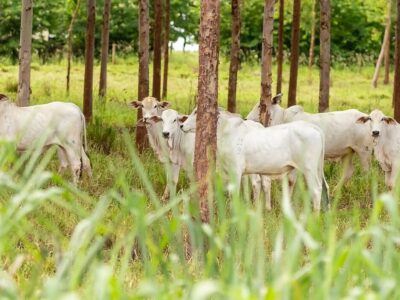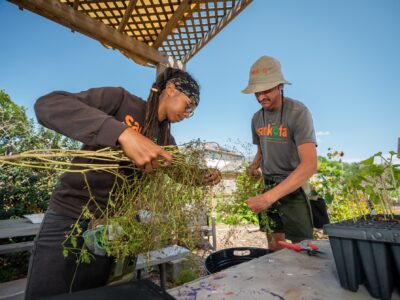As the modern American economy has evolved, sustainability and sustainable farming technologies have become essential topics to explore. We often don’t ask where our food comes from, but as it turns out, the U.S. imports more produce than previously thought. Now, however, a reexamination of American farming has begun, and it’s for the better.
You can be forgiven for not knowing about the burgeoning industry in Morehead, KY. It’s not a big city, but it could soon transform into one, thanks to the expansion of hydroponic farming startup,
AppHarvest. Shortened for “Appalachian Harvest,” this indoor farm is the largest greenhouse grower in the U.S., with over 58 football fields of greenhouses and water storage.
The farm uses a sustainable methodology to grow vine crops like tomatoes to sell to American grocery stores.
The plants in the greenhouses require an immense amount of water to grow. However, AppHarvest has found the ideal solution: sourced rainwater. All greenhouse roofs are built with rainwater capture systems, meaning no lakes or rivers are irrigated to the farm. The result has been a 90% reduction in water usage compared to traditional agricultural operations. The rainwater is stored in a reservoir on-site and funneled through hydroponic pipes that give plants the exact amount of water.
AppHarvest’s energy comes from solar power and utilizes a hybrid lighting system using solar and LED lights to conserve electricity while promoting plant growth. The farm uses no pesticides or insecticides on crops. The CEO added beneficial insects like bees to pollinate and eat damaging insects. This company is one of the most sustainable farming operations in the country, and it is gaining more attention from the public.
What makes Kentucky such an attractive place to start hydroponic farming?
AppHarvest’s CEO Jonathan Webb says it’s only a one-day drive to 70% of destinations in the continental U.S. The location means reduced shipping costs, emissions, and time on the road.
Kentucky has also been experiencing the opposite trend compared to America’s other agricultural hotbeds like California: they are receiving more rain. While California is suffering from devastating droughts, Kentucky has been getting wetter. Vegetables grown by AppHarvest can be readily available in less time than it would take to import the same vegetables from Mexico or get a lower supply from California.
Kentucky is also undergoing major energy revamps. The state’s power authority, Kentucky Utilities Company, has been working alongside other power providers to connect the grid to more renewable energy sources, particularly solar power. The University of Kentucky has already switched 44% of its campus energy to solar power. This trend will have more eco-friendly companies considering Kentucky as a business hub. Farming companies can use cleaner energy when connected to the state’s grid as it continues to embrace sustainable electricity sourcing.
The last and perhaps most impactful reason Kentucky is popular for farming companies is the lack of legitimate agricultural industry in the area and a labor force that’s ready to go. Since the U.S. has scaled back coal power exponentially and tobacco harvesting has been outsourced, the residents of towns like Morehead have needed work. Webb and AppHarvest have capitalized on this, hiring plenty of former coal miners and tobacco farmers. Many are grateful for the opportunity to work while learning how they are making a difference in the planet’s health. This trend will hopefully extend to all of Appalachia as more industry relocates to the South and Midwest.
While AppHarvest is doing a great job getting American-grown crops to stores quicker, challenges remain. For now, they can only grow vine crops like tomatoes, cucumbers, and berries in indoor greenhouses. There are still questions surrounding growing staple crops and grains. The crops grown by hydroponic farms are also more expensive than imported ones. However, AppHarvest has addressed some of these concerns with plans to build a new greenhouse to grow leafy greens like lettuce. With more advancements in farming technology, these challenges are sure to be answered in a timely fashion.





